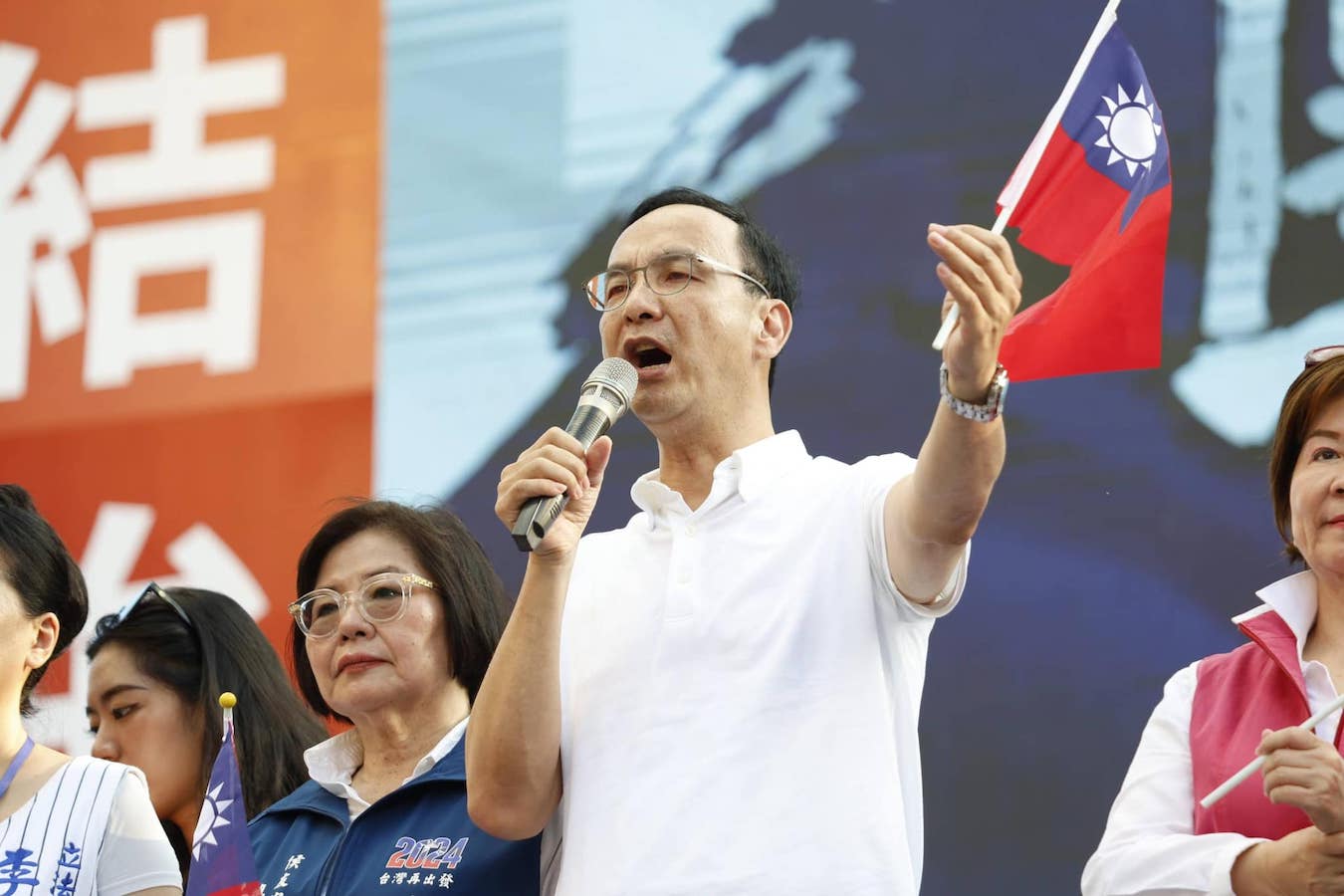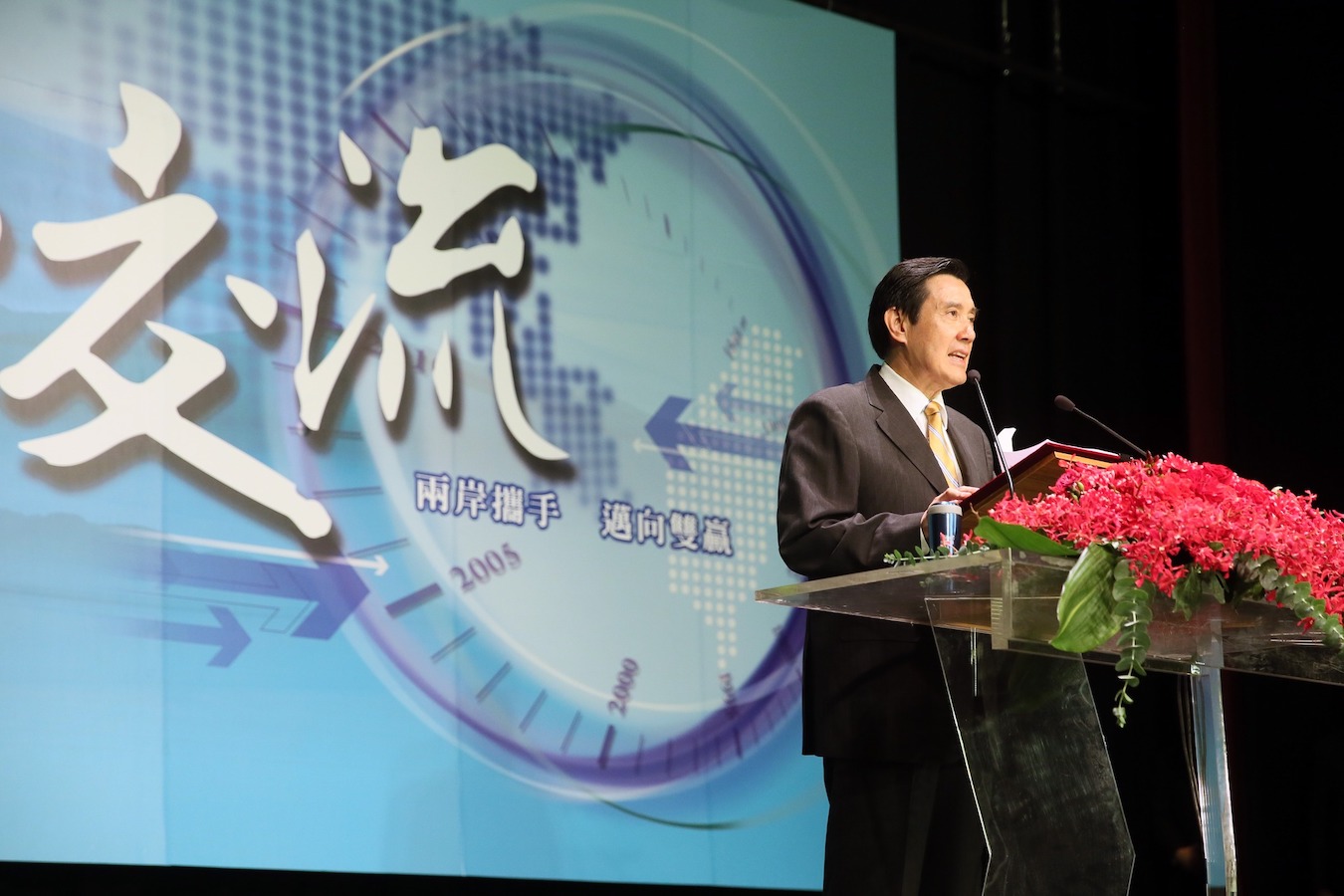by Brian Hioe
語言:
English
Photo Credit: KMT/Facebook
AHEAD OF ELECTIONS, China has threatened to end the Economic Cooperation Framework Agreement (ECFA) that dates from the time of the Ma administration. In particular, China claims that Taiwan is currently violating the terms of the agreement under the Tsai administration by continuing to maintain trade barriers on some Chinese goods, while also alleging that the Tsai administration has increased the number of Chinese goods blocked from entering Taiwan.
Likewise, China claims that Taiwan’s actions violate the regulations stipulated by the World Trade Organization, as a result of which it has launched a trade probe into Taiwan. Taiwan has accused the trade probe of being politically motivated, particularly seeing as it is set to end one day prior to the Taiwanese presidential elections. China claims that it may end ECFA in response to Taiwan’s actions or that it may suspend current preferential tax rates for Taiwanese products.
 KMT chair Eric Chu. Photo credit: KMT/Facebook
KMT chair Eric Chu. Photo credit: KMT/Facebook
According to Taiwanese government officials such as Executive Yuan Secretary-General Li Men-yen, the steel and petrochemical industries will be most heavily affected if ECFA ends. It is also expected that there will be continued attempts to pressure China’s agricultural industry, with China announcing bans on grouper, pineapple, wax apple, custard apple, and other products. It is generally thought that this was an attempt to pressure Taiwanese farmers, a demographic that has traditionally voted for the KMT because of fears that the KMT would retaliate against them for backing the DPP by cutting off access to irrigation or markets.
China is, as in the past, likely hoping to induce the public to vote for the KMT by threatening to suspend ECFA, then. ECFA continues to be touted as an accomplishment of his political administration by former president Ma Ying-jeou. In particular, during the present election, the KMT has called for a return to the economic engagement with China that took place during the Ma administration, claiming that it is the particular fault of the Tsai administration to have deteriorated political relations with China.
Indeed, at present, pan-Blue candidates have called for a revival of the CSSTA, the trade agreement that sparked the 2014 Sunflower Movement. Similarly, the pan-Blue camp has called for allowing Chinese tour groups back into Taiwan and alleged that it is the fault of the Tsai administration that this has not taken place, rather than China deciding not to allow for tour groups.
It is to be expected that the pan-Blue camp will frame the possible end of ECFA as a bellwether for worsening cross-strait relations, as well as something that deteriorates Taiwan’s overall competitiveness. Pan-Blue commentators have suggested that the small and medium-sized enterprises that make up the backbone of Taiwan’s economy have suffered under the Tsai administration and that Taiwan has failed to maintain international competitiveness, in that Taiwan’s inability to join ECFA will make it further challenging for Taiwan to join RCEP, the CPTPP, or other multilateral trade blocs.
 Former presidet Ma Ying-jeou. Photo credit: Ma Ying-jeou/Facebook
Former presidet Ma Ying-jeou. Photo credit: Ma Ying-jeou/Facebook
For its part, the Tsai administration has stated that it will assist Taiwanese companies seeking to reduce their reliance on the Chinese market. Statistics showing increased trade with the US and with Southeast Asia have been framed as a sign of shifting international trends that Taiwan should follow, rather than attempting to return toward a past era of economic age with China, never mind the profound shifts that have taken place geopolitically on the international stage in the time since then.
Ironically, however, just as the DPP called into question the wisdom of economic reliance on China, the KMT has framed the DPP’s facilitating of a closer economic and political relation with the US as potentially dangerous. For example, the construction of the Arizona TSMC fab was questioned as potentially leading to the losses of the current advantages that Taiwan maintains in semiconductor manufacturing, which induce international reliance on Taiwan. However, there have been fewer attempts by the KMT to cast doubt on the wisdom of stronger economic and political relations with Southeast Asia.
It is to be seen if ECFA becomes a significant campaign issue of the election cycle. One suspects not, with both the KMT and DPP instead leaning into traditional attacks on each other on the basis of calling for closer relations with the US versus closer relations with China. Yet this has not been the dominant refrain of the current campaign cycle, even if the most salient issue of the election continues to be the question of Taiwan’s relationship to China, and even as the DPP faces backlash over sluggish economic growth.

